SINGAPORE: When it was announced on Apr 6 that Basic Military Training would be stopped temporarily in line with Singapore’s COVID-19 “circuit breaker” measures, training at the Officer Cadet School (OCS) was spared the suspension.
The training school is needed to maintain the Singapore Armed Forces’ (SAF) operational readiness, said the Defence Ministry at the time, and it will continue with enhanced safety measures.
But what hasn’t been spared is the full OCS experience, where cadets go on a 38-week journey to emerge as commissioned officers and able leaders of soldiers. About 765 cadets are currently undergoing training at OCS.
While OCS commander Colonel (COL) Edwin Goh, 46, said the safety measures will not compromise training content and rigour, he acknowledged that cadets will have a different experience.
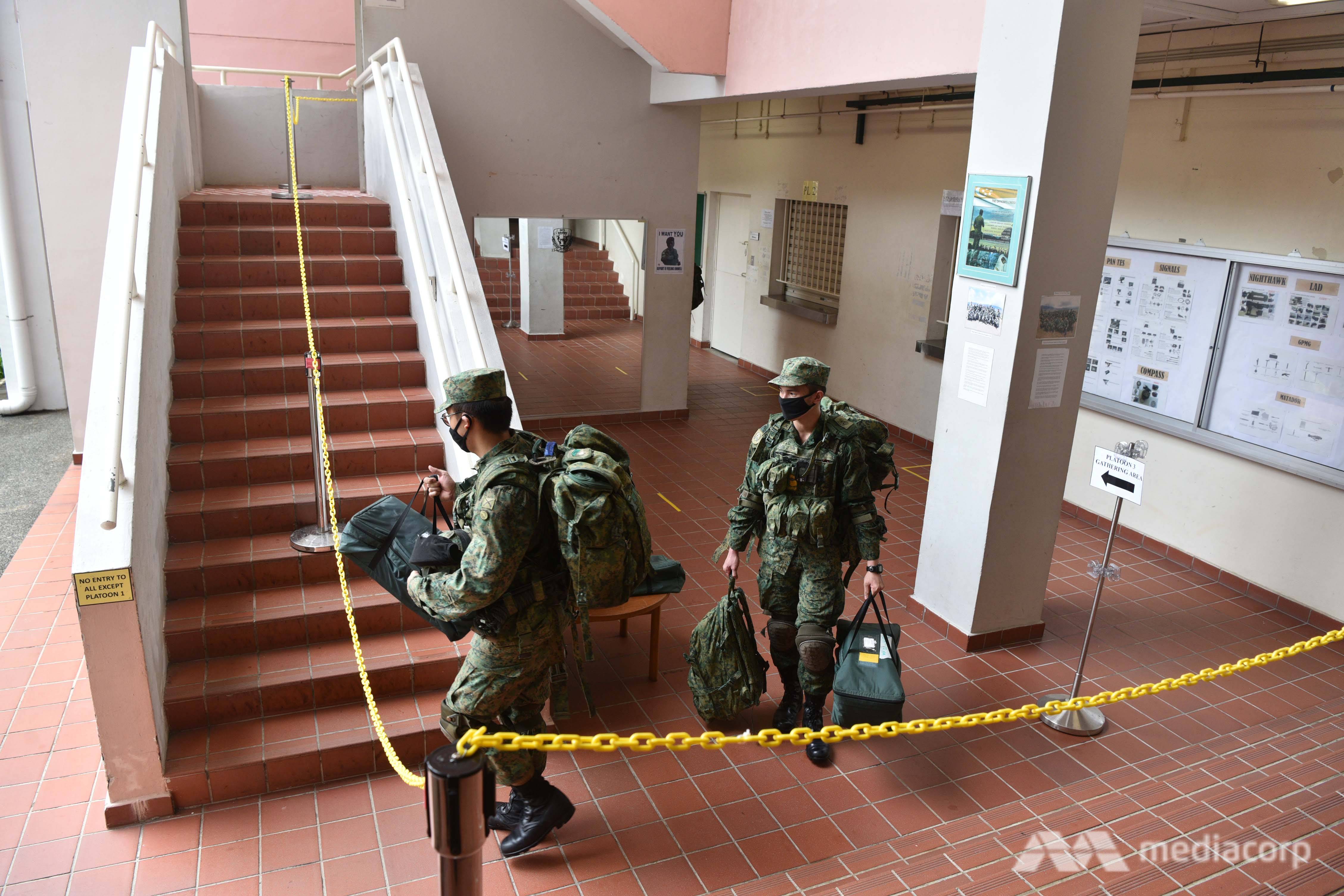
Cadets must use designated staircases to get to their bunks. (Photo: Jeremy Long)
Instead of tightly-packed rows, cadets now march in open files 1m apart. To get to their bunks, they use designated routes reserved for each platoon. Posters plastered along the corridors show a fierce-looking commander reminding them to stay 1m apart.
During training, masks stay on except during strenuous activities. After using free weights outside their bunks, cadets must wipe them down. Instead of dining together at the cookhouse, mealtimes have been reduced to eating from plastic takeaway containers in two-person bunks.
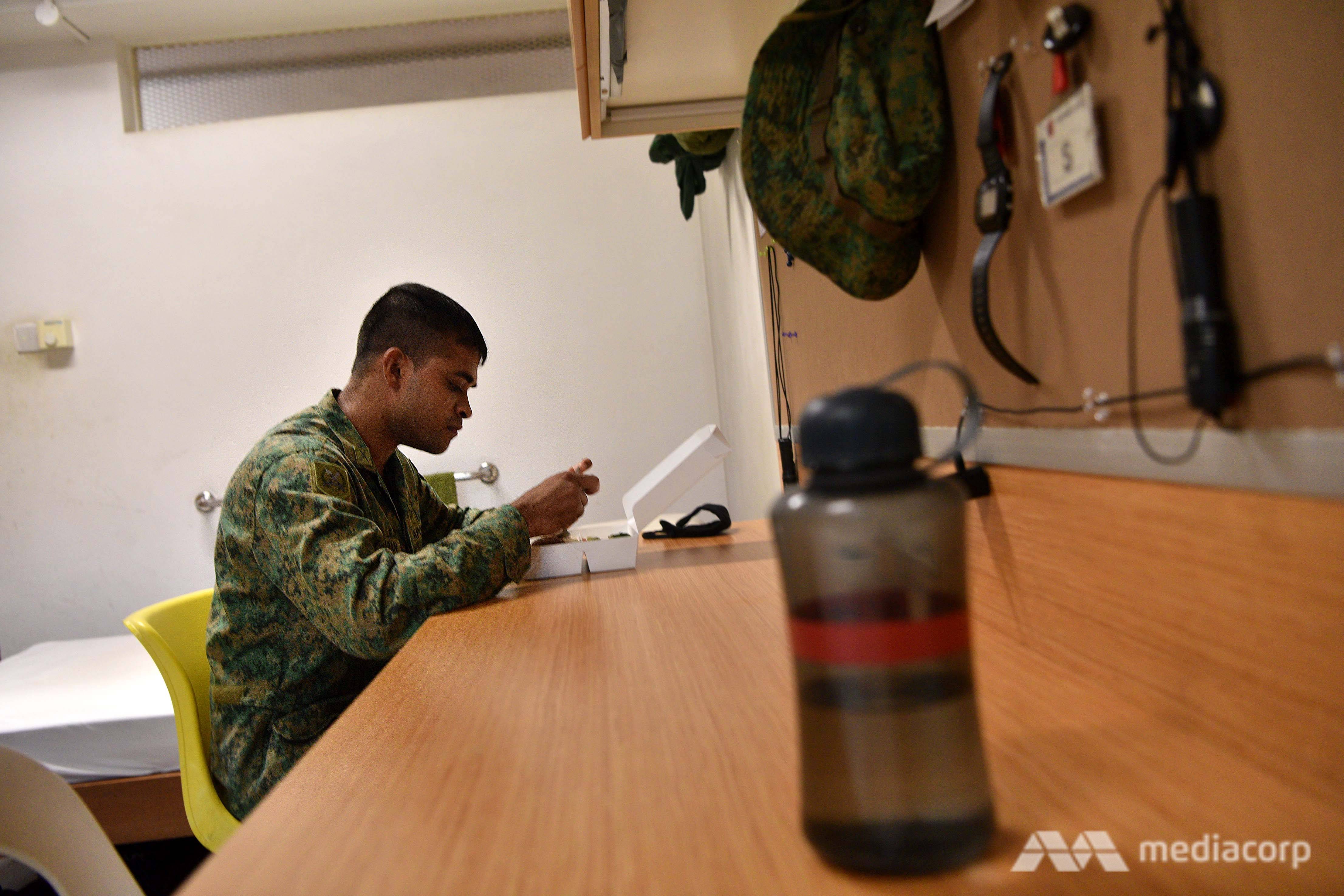
OCT Hariharan Vebeshun having his lunch in his bunk. (Photo: Jeremy Long)
But perhaps the biggest changes are to the cadets’ milestone activities.
Overseas exercises, a big part of cadets’ training, have been cancelled. So too is the traditional practice of parents coming to visit OCS. The commissioning parade, a proud day where parents, media and religious leaders are invited, will be replaced with a smaller, modified ceremony without visitors.
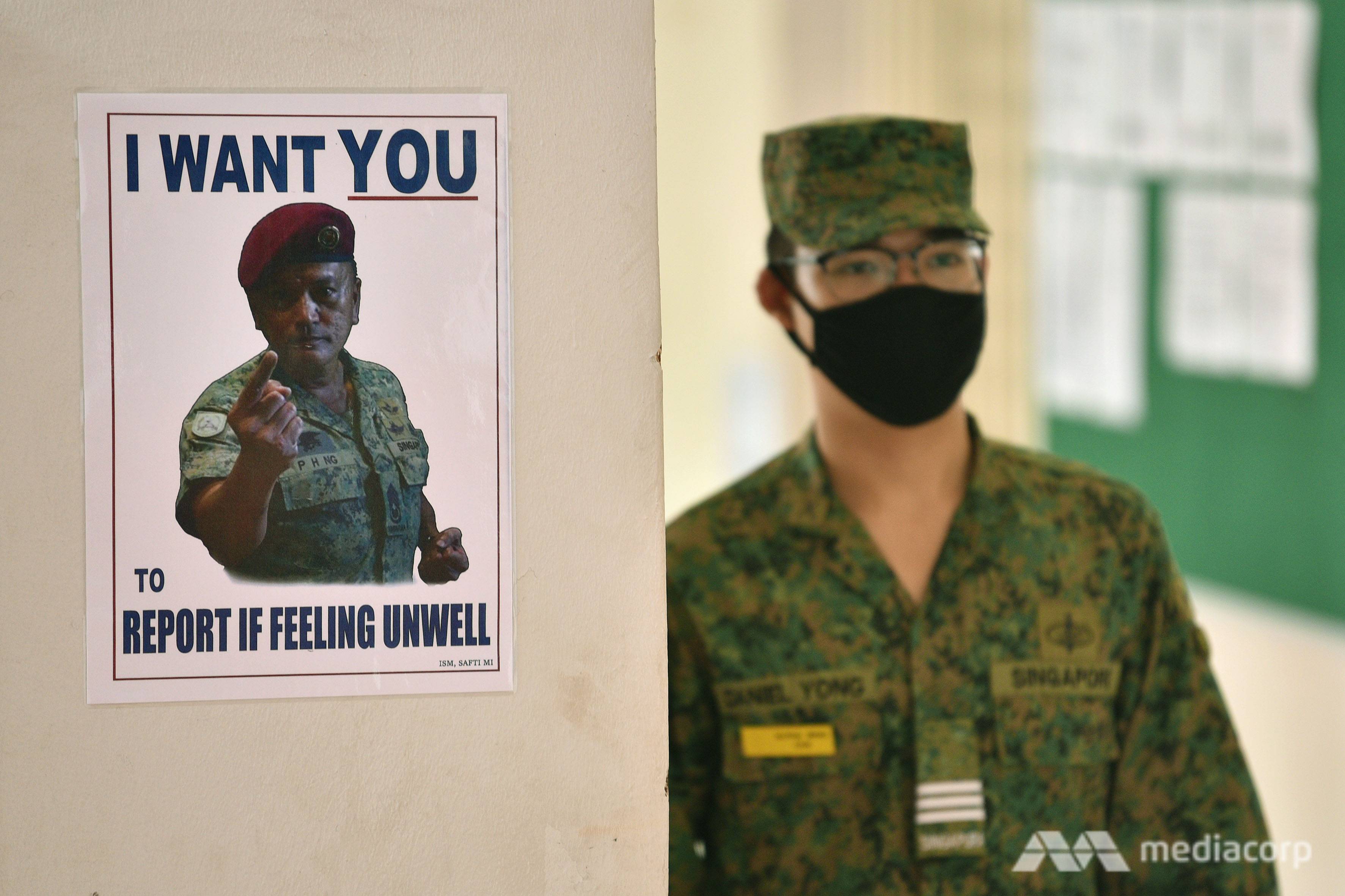
A poster reminding cadets to comply with COVID-19 safety measures. (Photo: Jeremy Long)
“To be very honest, I think (the OCS experience) will not be the same,” COL Goh told reporters in the camp on Monday (May 11). “But we are very driven to ensure that we give cadets the most fundamental and crucial competencies.”
OVERSEAS EXERCISES DONE LOCALLY
This means that some overseas exercises, conducted in countries like Brunei where the conditions and terrain pose a more challenging experience, have to be replicated in the jungles of Pulau Tekong.
In Brunei, soldiers learn jungle survival skills like collecting water and building shelter. They will learn the same skills in Singapore.
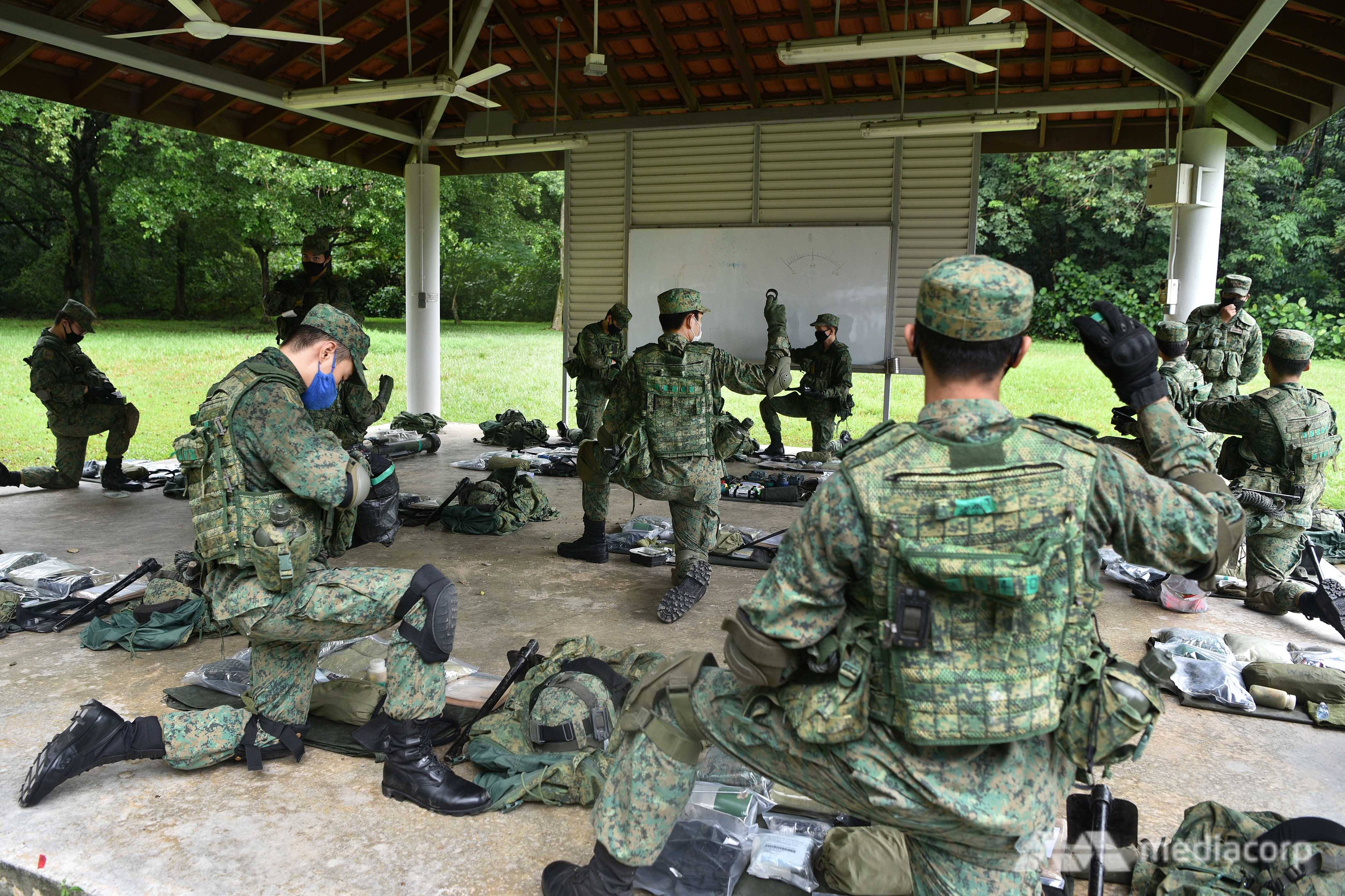
Cadets checking their equipment before an exercise. (Photo: Jeremy Long)
“Overseas training is usually well-recognised as the pinnacle of cadets’ training in terms of intensity as well as the fast pace,” assistant platoon commander Lieutenant (LTA) Mohamed Haiqal Mohamed Zainal, 24, said.
“We ensure that the so-called revised local training maintain that intensity and back-to-back mission profiles … so we instill that mental readiness in them.”
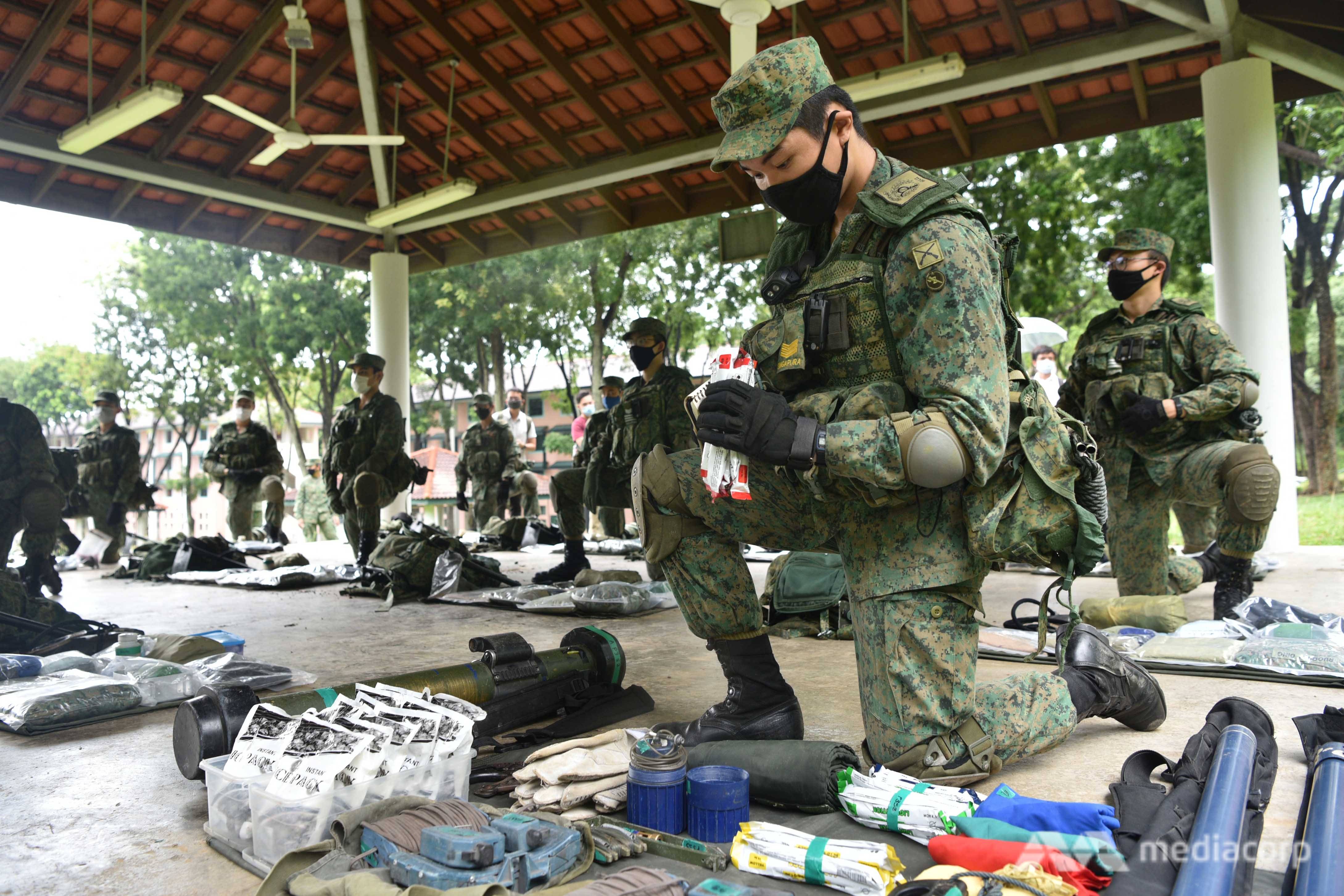
Cadets have to wear masks most of the time. (Photo: Jeremy Long)
In addition, LTA Haiqal said more “deliberate planning” has to be done to ensure training complies with COVID-19 safety measures.
This includes conducting more briefings in smaller groups, booking more buses to ferry troops for safe distancing on board, and allocating enough time to accommodate different groups in extended training.
WHY NOT FULL HOME-BASED LEARNING?
Where possible, commanders have put theoretical lessons like weapon handling online so cadets can study them from home and have shorter weeks in camp.
But COL Goh said it is not possible to implement full home-based learning for OCS, unlike its counterpart the Basic Military Training Centre.
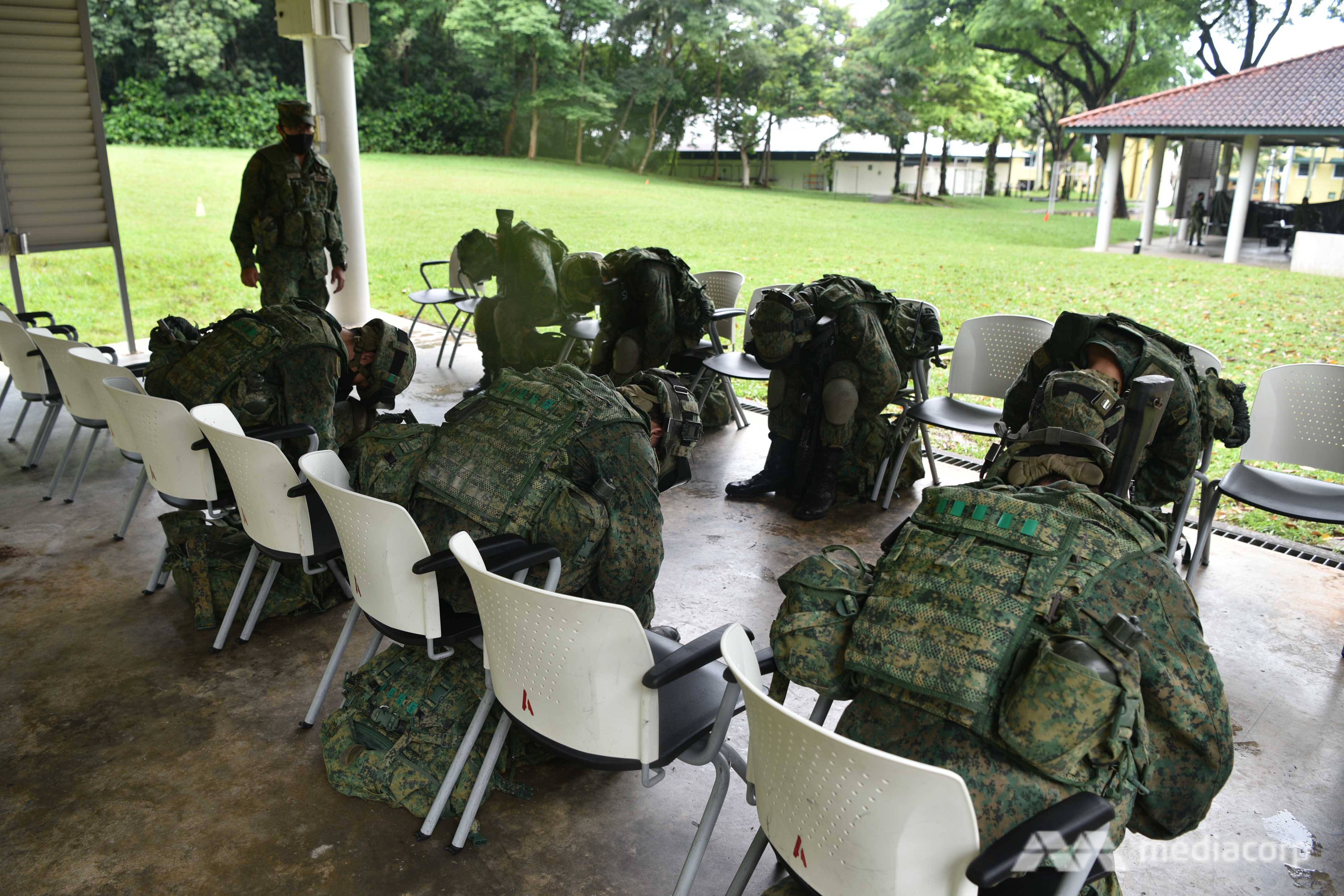
Cadets simulating a heli-insertion drill. (Photo: Jeremy Long)
“Officer cadets are at a more advanced stage of training,” he said. “It requires them to not only practise basic training, but also go beyond just basic military skillset.”
Home-based learning cannot fully replicate aspects like leadership, team dynamics and resilience training, he stated.
“They must come up to the field,” he added. “These are aspects of advanced training of Officer Cadet School that needs to continue to be done.”
WHAT DEFINES OFFICERS
Officer Cadet (OCT) Hariharan Vebeshun, 22, said training on the ground instead of at home gives him more confidence to lead his men in the future.
“If we’re just at home … we might not be as confident and competent as we are compared to when we carry on with training,” he said. “We’ll be losing that experience and knowledge.”
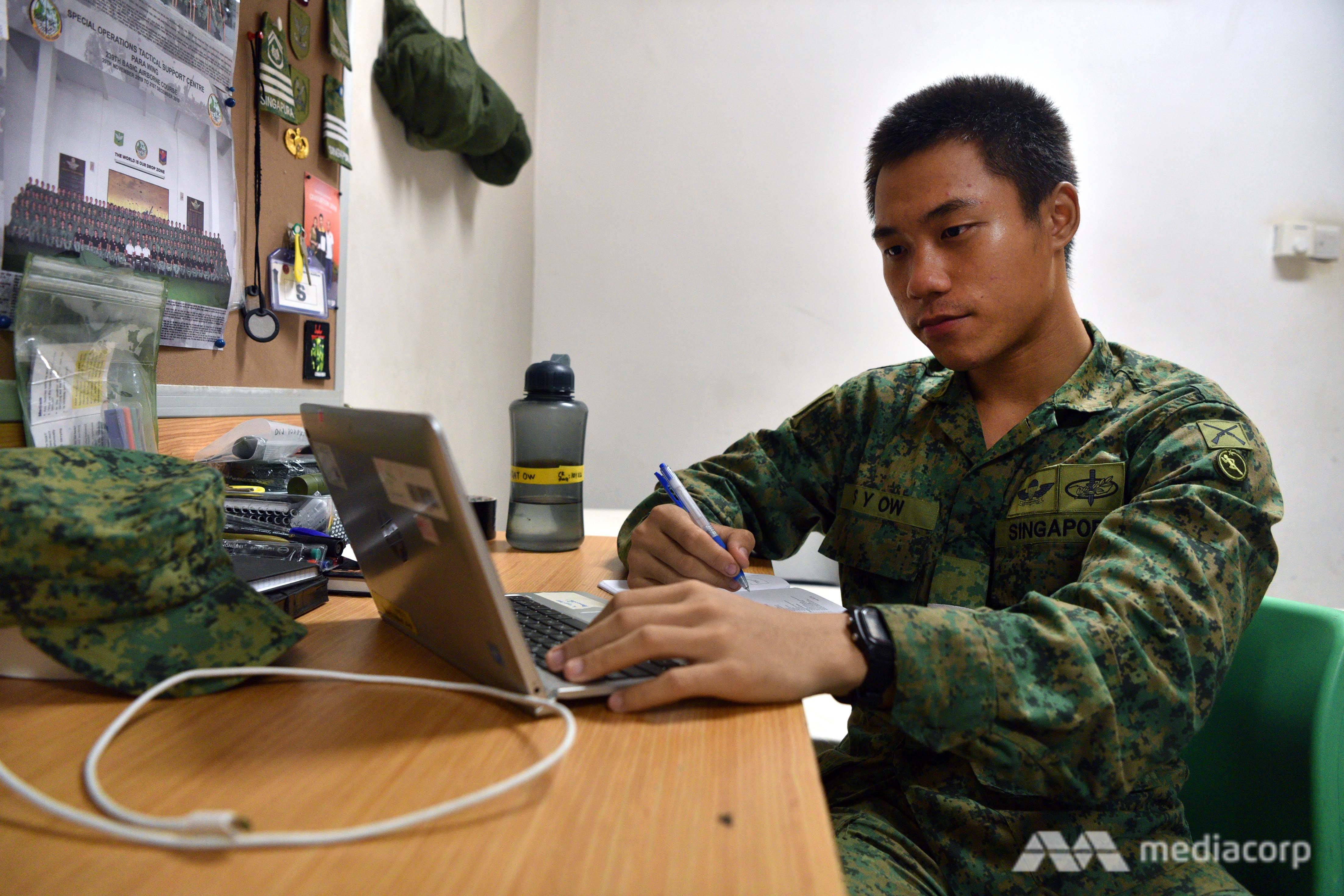
OCT Songkiat Ow doing online learning in his bunk. (Photo: Jeremy Long)
Nevertheless, fellow OCT Songkiat Ow Shiyuan, 22, admitted that day-to-day activities have become more regimented due to the enforcement of COVID-19 safety measures.
“As commander-to-be, to see COVID-19 measures as something of a hassle is definitely wrong,” he said. “We’re not doing this for ourselves, but for the people that will be under our command tomorrow.”
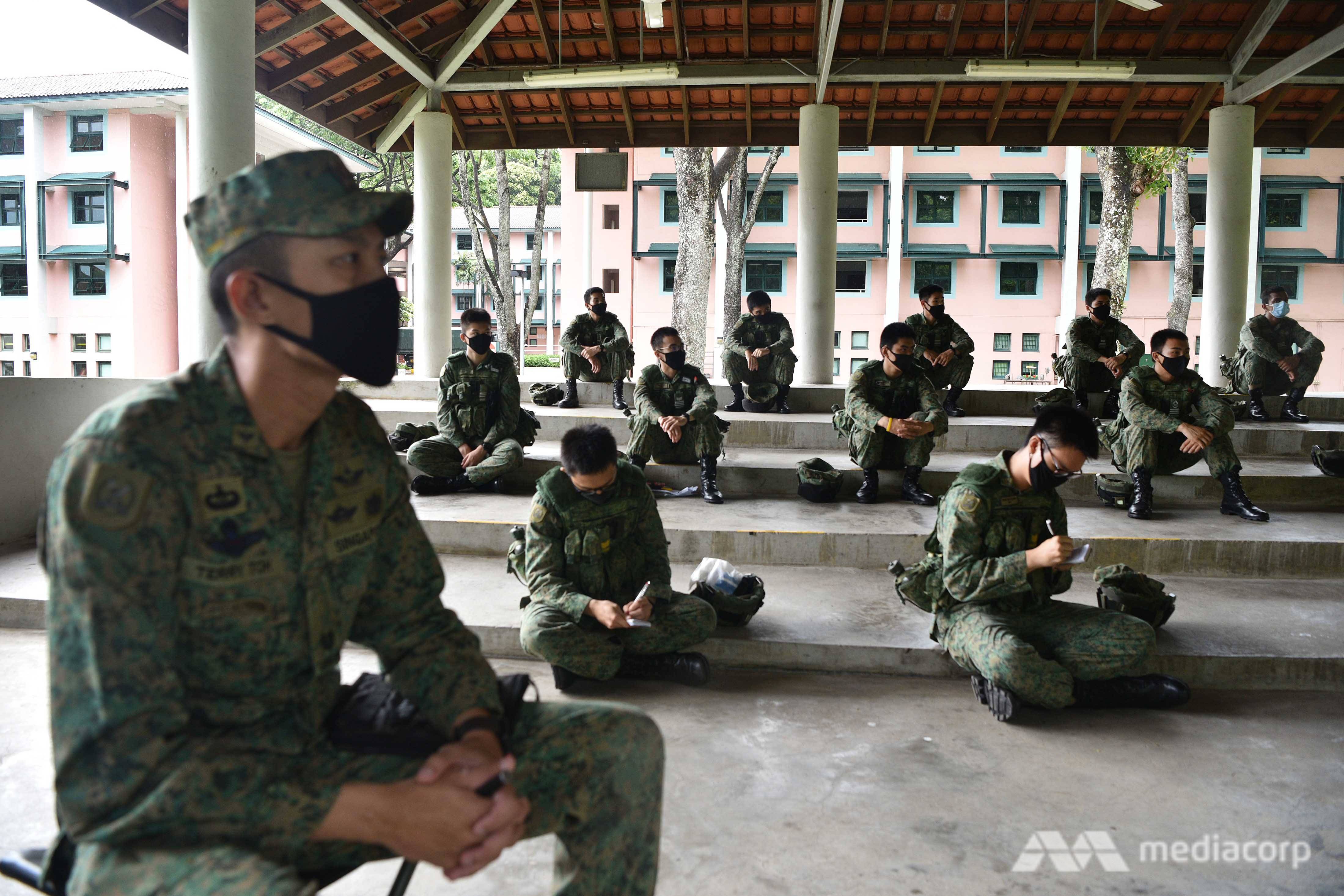
Cadets sitting through a mission brief. (Photo: Jeremy Long)
And while OCT Ow said cadets are a bit sad that overseas exercises and the commissioning parade have been put on hold, he stressed that what matters is not the journey but what comes out of it.
“It’s what we learnt and gained from the experience, and how we are going to translate it to our men,” he added. “That’s what makes us officers.”
BOOKMARK THIS: Our comprehensive coverage of the coronavirus outbreak and its developments
Download our app or subscribe to our Telegram channel for the latest updates on the coronavirus outbreak: https://cna.asia/telegram




